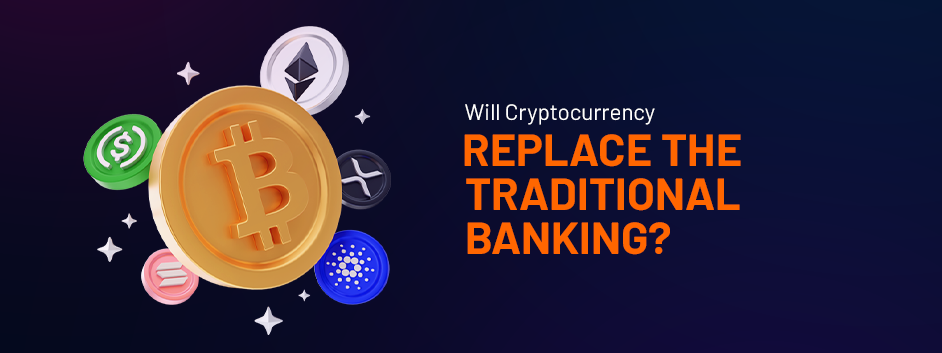Back in 2009, Bitcoin sparked a quiet revolution. Today, that ripple has become a wave, challenging how we think about money, trust, and banks. So, will cryptocurrency replace traditional banking? Or are we witnessing the beginning of a powerful coexistence? This blog explores the rise of crypto, the future of banking, and how the MScIT at Presidential Graduate School prepares you to lead this transformation.
Table of Contents:
Pros of Cryptocurrency Over Traditional Banking
Decentralization and Freedom
Lower Transaction Fees
Global Accessibility
Speed
Cryptocurrency vs. Traditional Banking: Will They Replace or Coexist?
Connecting the Dots: Blockchain in the MScIT Curriculum
Future Prospects
Conclusion
FAQs
Pros of Cryptocurrency Over Traditional Banking
Cryptocurrency operates on decentralized networks. It allows peer-to-peer transactions without the need for intermediaries. In contrast, traditional banking depends on centralized institutions to manage and control the flow of transactions. Let’s dive into the pros of cryptocurrency over conventional banking.
Decentralization and Freedom
Decentralization brings power back to the people. This ensures freedom, as one does not have to depend on intermediaries, so they have more control over transactions, communications, and data. In addition, decentralization enhances transparency and trust. It creates the foundation for verifiable transactions and promotes accountability across all levels of interaction.
Lower Transaction Fees
Intermediaries like banks, payment processors, and clearinghouses charge a service fee. Traditional banking relies on intermediaries to manage money, which leads to higher transaction fees. In contrast, cryptocurrency has lower transaction fees as it eliminates these middlemen.
Global Accessibility
Cryptocurrency does not have geographical boundaries. Traditional banking is limited to specific countries, regulations, and financial institutions. On the other hand, cryptocurrencies operate on a borderless digital network. Anyone with an internet connection can access and use it from anywhere. This global accessibility makes it valuable for people in remote areas or countries with limited banking infrastructure.
Speed
One of the key advantages of cryptocurrency over traditional banking is transaction speed. In traditional financial systems, international transactions often take several hours to a few days due to multiple intermediaries and banking procedures. Cryptocurrencies provide faster transactions, whereby sending Bitcoin may take 10 minutes to an hour. Other cryptocurrencies like Litecoin, Ripple (XRP), or Solana can process transactions in a few seconds to minutes.
Cryptocurrency vs. Traditional Banking: Will They Replace or Coexist?
Many experts believe that instead of completely replacing traditional banking, cryptocurrency is more likely to coexist with existing financial systems. Meanwhile, we have already started to see the rise of hybrid systems. Examples of integrations include Visa and Mastercard, which provide crypto payment cards, and PayPal, which offers crypto buying, selling, and holding. The growth of Central Bank Digital Currencies (CBDCs) in neighboring countries like China and India raises hope for the coexistence of traditional banking and cryptocurrency in Nepal.
Connecting the Dots: Blockchain in the MScIT Curriculum
At Presidential Graduate School (PGS), our MScIT program, affiliated with Westcliff University, goes beyond theory. Our specialized Blockchain module delves into decentralized technologies, smart contracts, and digital ledgers. You’ll gain practical, hands-on experience and learn to apply blockchain to solve real-world problems. With demand for blockchain professionals rising globally, this course gives you the skills, knowledge, and confidence to lead the tech revolution.
Pursuing the MScIT course holds numerous benefits. Job prospects in blockchain are growing strongly. PGS helps you gain transferable skills, allowing you to position yourself at the forefront of change. Blockchain technology will revolutionize a range of industries. Hence, mastering this degree helps you to lead the next wave of technological disruption.
Future Prospects
Blockchain technology has huge future potential. Though cryptocurrency remains the biggest application of blockchain technology, several areas are booming where this technology is being used. In the future, probability includes the use of blockchain in supply chain management, secure cloud storage, cybersecurity, and asset tokenization. Hence, it is clear that blockchain is a transformative force and presents significant opportunities. Being used in various industries, it increases job prospects and ensures financial empowerment. So, pursuing an MScIT degree now can make you a valuable asset who can grab the opportunities of a tech-driven world in the future.
Conclusion
So, will crypto replace traditional banking? Not entirely—but it will reshape it. The smart choice isn’t choosing sides—it’s understanding both. And that’s where the MScIT in Blockchain at PGS comes in. If you're ready to be more than a tech consumer—to be a tech creator—this is where your journey begins.
FAQs
Can cryptocurrency overtake cash?
Various international companies have started accepting payments in the form of cryptocurrency; this might make people confident that it will replace money. However, cryptocurrency will not replace cash any time soon.
Is crypto going to replace banks completely?
Not likely. Instead, we're moving toward a future where digital currencies and traditional banking work side by side. Many global platforms, like Visa, Mastercard, and PayPal, are already integrating both.
How can I build a successful career in blockchain in Nepal?
The first step towards success is always an education. Pursue an MScIT program at Presidential Graduate School to build a successful career in blockchain in Nepal. We offer the best course with a comprehensive syllabus to excel in the blockchain industry.
For More: Advance Your Career in Blockchain with an MScIT Degree

